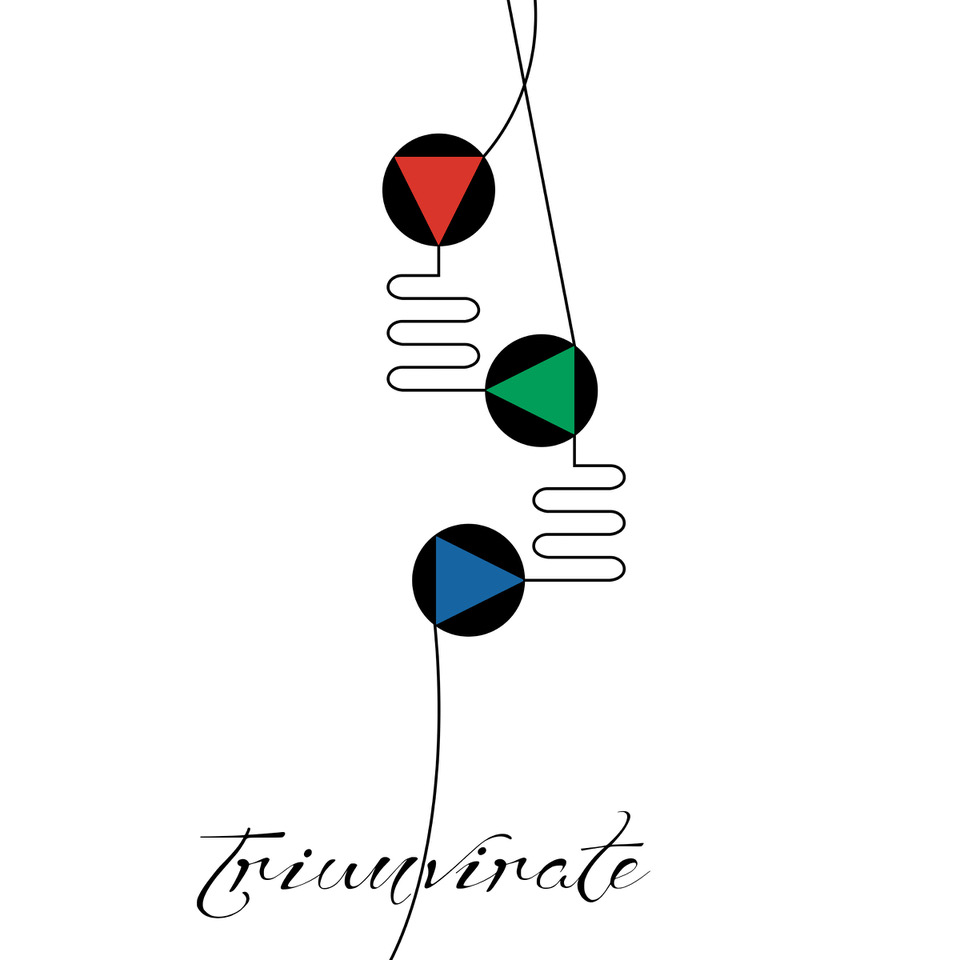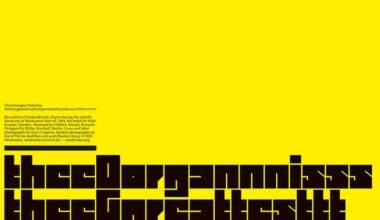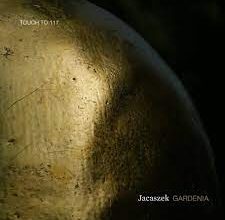
What happens when a third musician is introduced into an already well-established creative partnership, one forged over the best part of 40 years? What if that partnership isn’t just a creative one, but also a lifelong bond? How does that third musician respond? How do they get their ideas across convincingly in the face of such a union?
Such are the questions you might have asked yourself as Throbbing Gristle/Chris & Cosey/Carter Tutti mainstays Chris Carter and Cosey Fanni Tutti took to the stage with Factory Floor’s Nik Void on 13 May 2011 at London’s Roundhouse as part of Mute’s Short Circuit festival. The result, later released as the trio’s ‘Transverse’ LP, dispelled any notion that Void found it hard to get any action in this musical ménage à trois. Like the best trios, whether in jazz, rock, prog or contemporary electronic improvisation, the results showed off an effortless symbiosis, a seamless, shared-mind unity of purpose rather than a constant struggle to allow individual ideas to get airtime.
Around the time of that seemingly one-off performance, critics were fawning over Void’s band Factory Floor as the natural successors to the Throbbing Gristle legacy, something which sounded like outrageous journalistic hyperbole to anyone who considered that quartet unassailably sacrosanct. Nevertheless, the notion began to make more sense when Carter’s designs were spliced together with the noisy interjections supplied by Void and Cosey at that solitary live performance. Void’s involvement seemed to engender a more robust, industrial techno-inflected quality to Carter’s rhythms; rhythms which nodded to the unswerving firmness of Factory Floor’s material, who had, in turn, isolated and teased that rigid, regimented quality out of TG’s catalogue.
Although it felt at the time like a one-off project for a solitary live happening, ‘Transverse’ was succeeded in 2015 by ‘f(x)’. Unlike ‘Transverse’, ‘f(x)’ was conceived in the studio, and showed that there was an overflowing reservoir of ideas that the trio could play with. ‘Triumvirate’, the third and final report from Carter Tutti Void, brings the best part of a decade’s worth of sporadic collaboration to an untimely full stop.
Trios in musical history generally have one member who is the de facto leader. In the case of Carter Tutti Void, that role falls to Carter, but only by virtue of his carefully prefabricated rhythms being the jumping-off point for the six tracks on ‘Triumvirate’. As each track progresses, those ceaseless Carterisms unerringly cease to be the focal point, your attention being turned instead toward the series of sonic events from Void and Fanni Tutti that writhe through and around those rhythms in an almost randomised, highly unpredictable fashion. On ‘T3.3’ it sounds like the pair dropped a bunch of sounds – rattling guitar, distortion, saw-edged synths and other fragments – into a saw mill and watched as the ensuing shards were sprayed all over Carter’s urgent, robotic beats. Following these sounds is futile, so quickly is one replaced with another.
Some of that hyperactivity is suppressed on ‘T3.5’, wherein layers of droning guitar noisily coexists with an angry electro-dub framework, over which wordless (or simply indecipherable) vocals float menacingly into view. This is a track where the foreground sounds seem to be placed in an almost antagonistic tension with the beats, vying for your complete attention while all manner of variations of the rhythm are taking place off in the background, including some springy percussion nodding in the direction of King Tubby’s mixing desk.
The best moments, however, are undoubtedly the heaviest. The itchy synths of ‘T3.2’ and ‘T3.1’ both feature a bass-heavy architecture that gives the listener the impression of being trapped on some sort of harrowing production line, being both brilliantly dense and hauntingly sparse at the same time. There’s a point around four minutes into the latter that feels like the end of the world, when the beat drops into the background and a cacophony of whining, atonal guitars dominate the foreground, its nightmarish ominousness only dissipating when a fleeting shimmer of high end synth levity ushers in the beat again.
These are feisty, punishing, physical pieces, each containing a paranoiac sense of twitchiness and vast blocks of beautiful, undulating, joyous noise. Arising out of semi-improvised sessions, the six tracks here feel quintessentially human despite the prevalence of those intricately-developed programmed beats. To think of ‘Triumvirate’ as being the end of the road for a trio so much more than the sum of its parts is, frankly, a crying shame.





